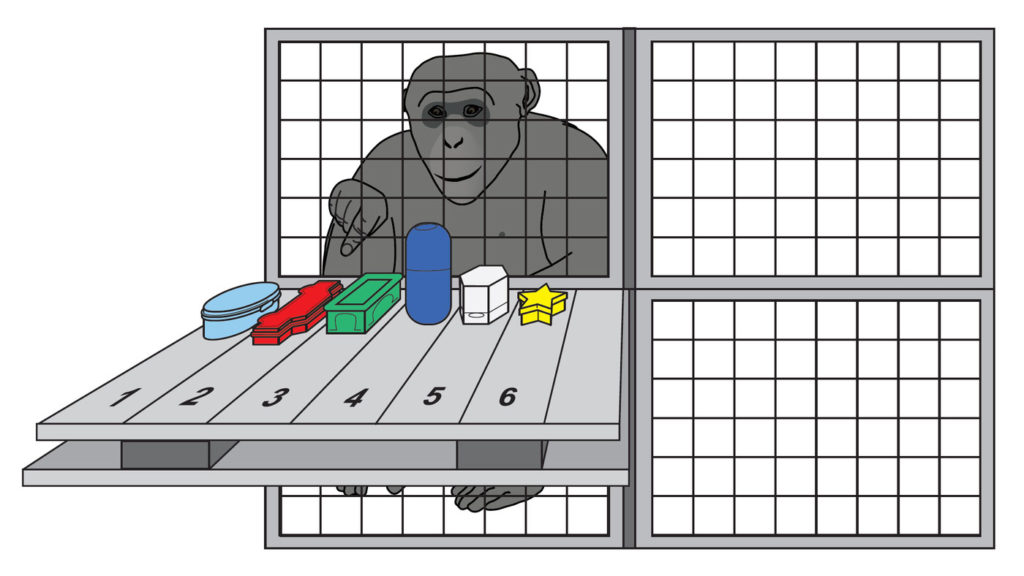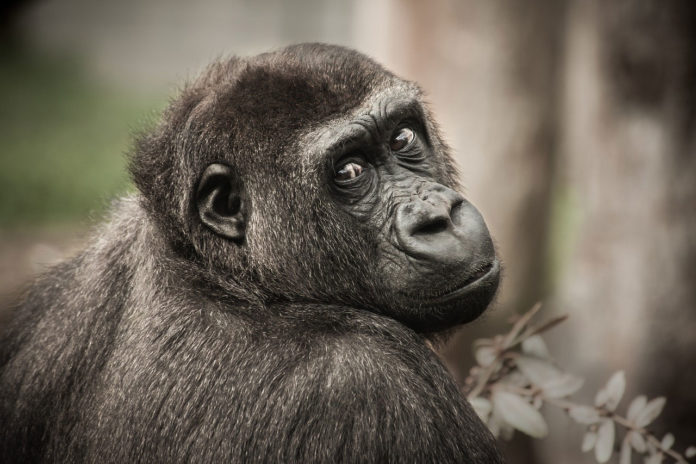Chimpanzee memory has been extensively studied. The general assumption is that, as with many other cognitive functions, it is inferior to that of humans; some data, however, suggest that, in some circumstances, chimpanzee memory may indeed be superior to human memory.
In a new study by the Max Planck Society, scientists reported remarkable similarities between human and chimpanzees working memory abilities despite evolutionary and life-history differences.
To check chimpanzees’ working memory abilities, scientists presented them with a task in which they could search for food in a number of small, opaque boxes. During this task, scientists primarily showed pieces of food, hidden in boxes to chimpanzees.

© MPI f. Evolutionary Anthropology
Then they searched for the food items by pointing at the boxes one by one. To avoid redundant searches, they needed to continuously update which containers they had already visited.
If a picked box contained food, the chimpanzees got it as a reward. After every choice, the boxes were secured for 15 seconds.
In the 2nd experiment, scientists increased the difficulty of the task depending on the ability of each chimpanzee by increasing the number of boxes and by shuffling the boxes between each search. Scientists investigated how susceptible their working memory was to attentional interference, an important signature, setting working memory in humans apart from long-term memory.
They found key similarities between chimpanzee and human working memory: The best-performing chimpanzees remembered at least four items; one young chimpanzee recalled more than seven items. They used both the appearance of the boxes as well as their position to remember their previous choices.
Contrasts in working memory capacity between chimpanzees were steady over months. The most evident contrast among chimpanzees and humans was not the working memory capacity but rather the hunting strategies that humans ordinarily utilize to encourage this task: Chimpanzees did not think of the idea to look for the boxes in an array from one side to the next.
Christoph Voelter from the Max Planck Institute for Evolutionary Anthropology and the University of Veterinary Medicine Vienna said, “Our findings suggest that chimpanzees perform similar to seven-year-old children in an intuitive working memory task that does not rely on extensive training.”
This study demonstrates that chimpanzees, like humans, possess working memory abilities that allow them to keep track of a series of previous events or actions. Contrary to previous claims, chimpanzees’ working memory capacity does not appear to be fundamentally different from human capacity.
